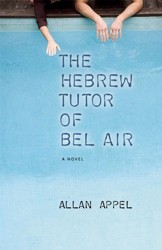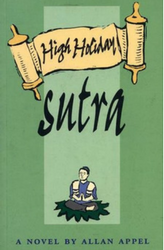The Book of Norman, a humorous family drama, chronicles the life of Norman Gould, a rabbinical school dropout whose brother, Jon, has recently become interested in converting to Mormonism. Both sons struggle with revealing their new religious rebellions to their Jewish mother, a recent widow who already has a boyfriend ten months after the death of her husband, which Norman is less than thrilled about. The novel revolves around the state of Norman and Jon’s deceased father’s soul. Jon and Norman argue over whether their father should be converted to Mormonism after his death in order to have a Mormon afterlife, which Jon prefers, or whether Norman should say Kaddish to keep his father’s soul in a Jewish afterlife, even though he is pessimistic about the existence of any type of afterlife. The status and location of a person’s soul seems to carry a heavier significance in the Mormon faith than the Jewish faith, according to Jon and Mormon elders. Despite having dropped out of rabbinical school and not believing in souls in the first place, Norman becomes passionate about the state of his father’s soul, which ends up permanently altering his relationship with his brother.
Norman and Jon are home for the summer and are expected to work at a Jewish day camp, surrounded by the community they are both trying to avoid. At camp, they meet two beautiful Israeli female counselors. These Israelis become a sexual obsession for Norman, whose recent “break” from Judaism becomes an excuse for misogynistic talk. His brother Jon has gone in the opposite direction, avoiding looking at the Israeli women when they are scantily clad and refusing to join in with Norman’s constant remarks about their bodies. Jon notes that there is something unusual about the women, though, due to their ironic turnout at certain places and events that are important to Norman, including a Shabbat minyan service and a strange yet tense basketball game between Mormons and Jews to determine the status of his father’s soul. Norman concludes that they must be angels and refers to them as such throughout the book. The “angels,” through their good looks, charm, and ambiguity, add a mystical element to the novel that is meant to be humorous, although sometimes comes across as bizarre.
Author Allan Appel has successfully brought readers into the mind of Norman, a confused, young man trying to sort out his identity at a time of loss and family change. Many readers will find humor in Norman’s attempted escapes from Judaism, including his indulgence in cheeseburgers and virtually everything non-kosher as a means of rebellion and self-search. Although, ultimately, due to the power of prayer and religious study, Norman and Jon both realize the impossibility of straying far from their Jewish roots and culture.
Read Allan Appel’s Visiting Scribe Posts
Jamie Wendt is the author of the poetry collection Laughing in Yiddish (Broadstone Books, 2025), which was a finalist for the 2022 Philip Levine Prize in Poetry. Her first book, Fruit of the Earth (Main Street Rag, 2018), won the 2019 National Federation of Press Women Book Award in Poetry. Her poems and essays have been published in various literary journals and anthologies, including Feminine Rising, Catamaran, Lilith, Jet Fuel Review, the Forward, Minyan Magazine, and others. She contributes book reviews to the Jewish Book Council. She won third prize in the 2024 Reuben Rose Poetry Competition and won second prize for the 2024 Holloway Free Verse Award through the Illinois State Poetry Society. Wendt holds an MFA in Creative Writing from the University of Nebraska Omaha. She lives in Chicago with her husband and two kids. Follow her online at https://jamie-wendt.com/ or on Instagram @jamiewendtpoet.





